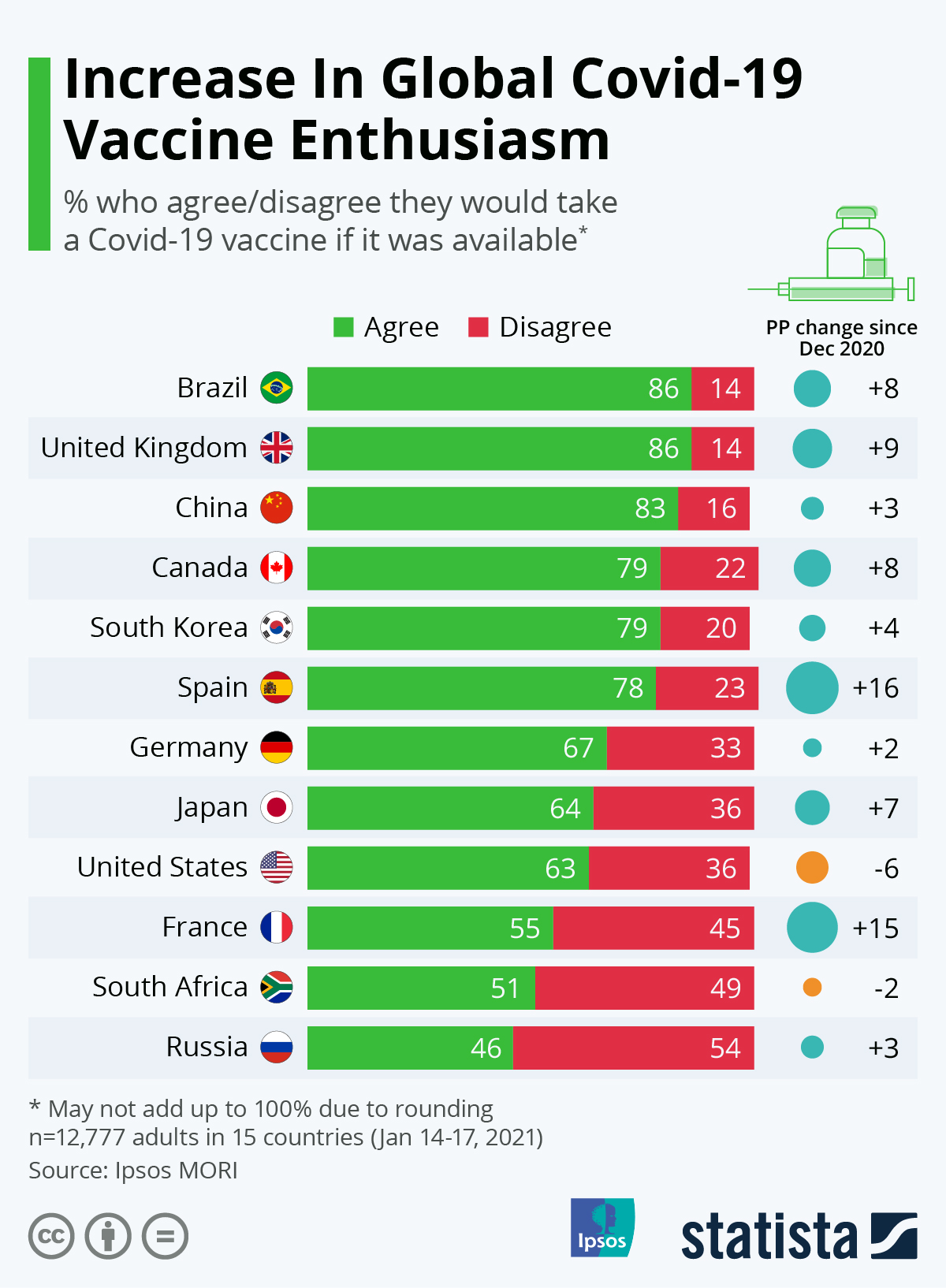Experts previously warned that vaccine hesitancy was set to become one of the major obstacles in ending the Covid-19 pandemic. The world has now embarked on the most challenging vaccination campaign in history and a recent Ipsos MORI poll found that vaccine hesitancy is now transitioning into a global stampede for access. The issue of suppy has been making headlines this week with AstraZeneca informing the European Commission that there would be a major shortfall in the number of doses it is contracted supply in the first quarter of 2021. The EU has now said it may block vaccine exports amid reports it would only receive half the AstraZeneca doses it purchased during the first few months of the year.
Vaccine hesitancy was initially blamed on conspiracy theories and false information emanating from dark corners of the web but Ipsos MORI states that the data was sending the wrong signal. In fact, reluctance was more likely down to reasonable people waiting to establish all the facts before deciding to get the jab with concern particularly high regarding the pace of development and approval of the different shots. In its latest polling, Ipsos has found that the share willing to get the jab has climbed considerably in many countries. As of mid-January, willingness was highest in Brazil, China and the UK at over 80 percent.
It was far lower in the U.S. at 63 percent, though that figure is still higher than in many other countries such as France, South Africa and Russia. France has worried experts due to its consistently high level of vaccine hesitancy. In late December, only 40 percent of people in France said they would be vaccinated but the good news is that the figure has now climbed to 55 percent. In Spain, it has also jumped an impressive 16 percent to reach 78 percent. The U.S. actually experienced a drop in vaccine willingness over the past few weeks with Ipsos seeing a six percentage point decline.





















